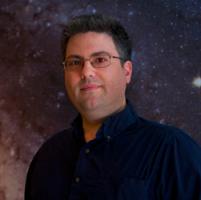Dr. Mark Brodwin
University of Missouri Kansas City

The Euclid Mission
102 Cardwell Hall
October 21, 2013
4:30 p.m.
The 2011 Nobel Prize in Physics was awarded to three astronomers for discovering that the expansion of the Universe is accelerating. The agent responsible for this bizarre "repulsive gravity" is called Dark Energy, and it is the dominant component of the Universe at the present time. Understanding the nature of this Dark Energy is one of the most compelling challenges of cosmology and fundamental physics.
The European Space Agency is building a dedicated space telescope -- Euclid -- designed to study Dark Energy with revolutionary precision.
It will also provide the first stringent test of General Relativity on very large (cosmological) scales, constrain the masses of neutrinos, and even probe the initial conditions of the Universe. To achieve these goals Euclid will measure precise shapes of over a billion galaxies, and accurate redshifts for tens of millions of them, to enable sensitive weak gravitational lensing and galaxy clustering measurements. I will give an overview of the Euclid mission, including an introduction to Dark Energy and the methods Euclid will use to constrain its properties. I will also reveal the important role UMKC will play in this exciting mission that may revolutionize physics.
